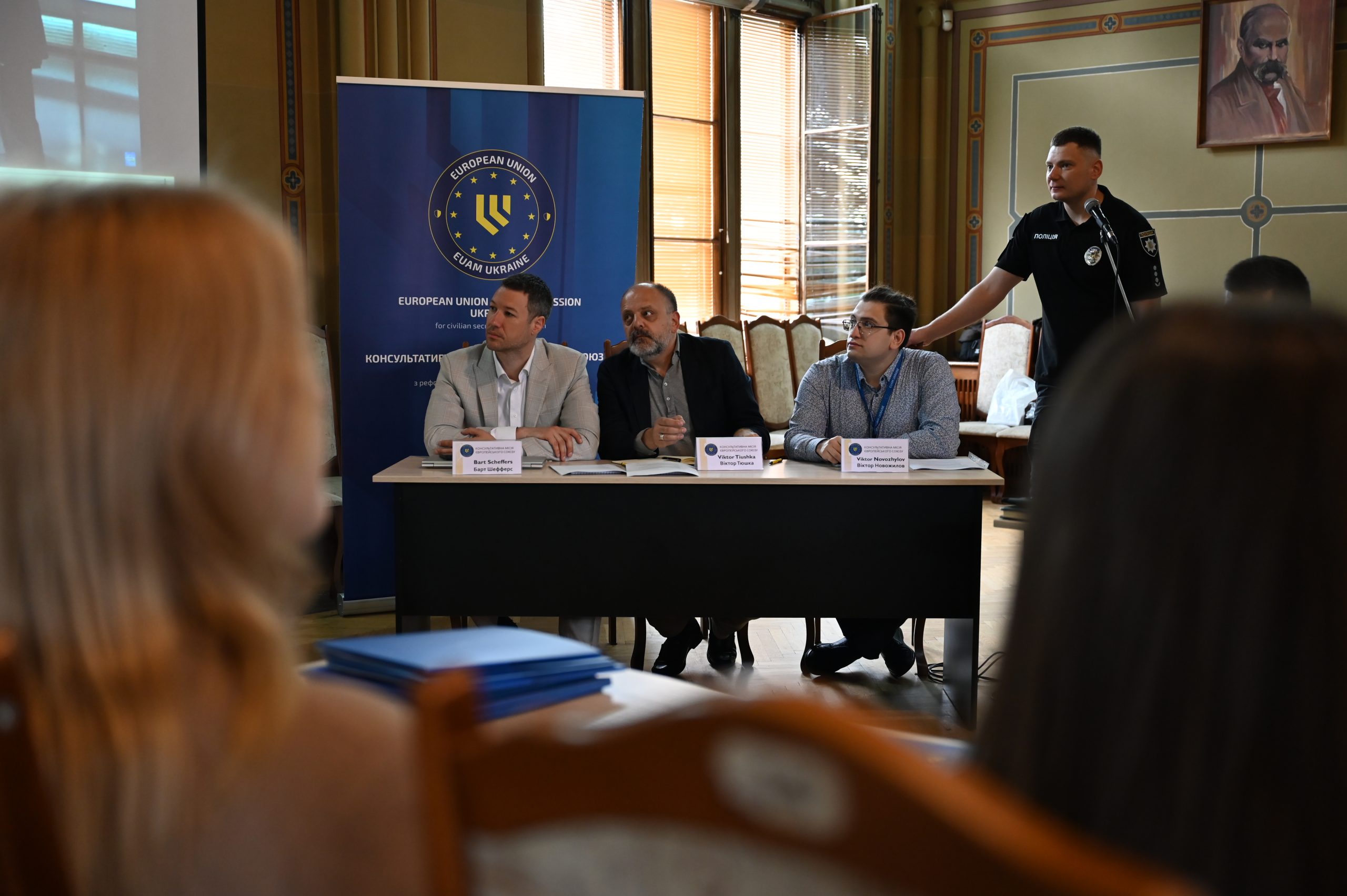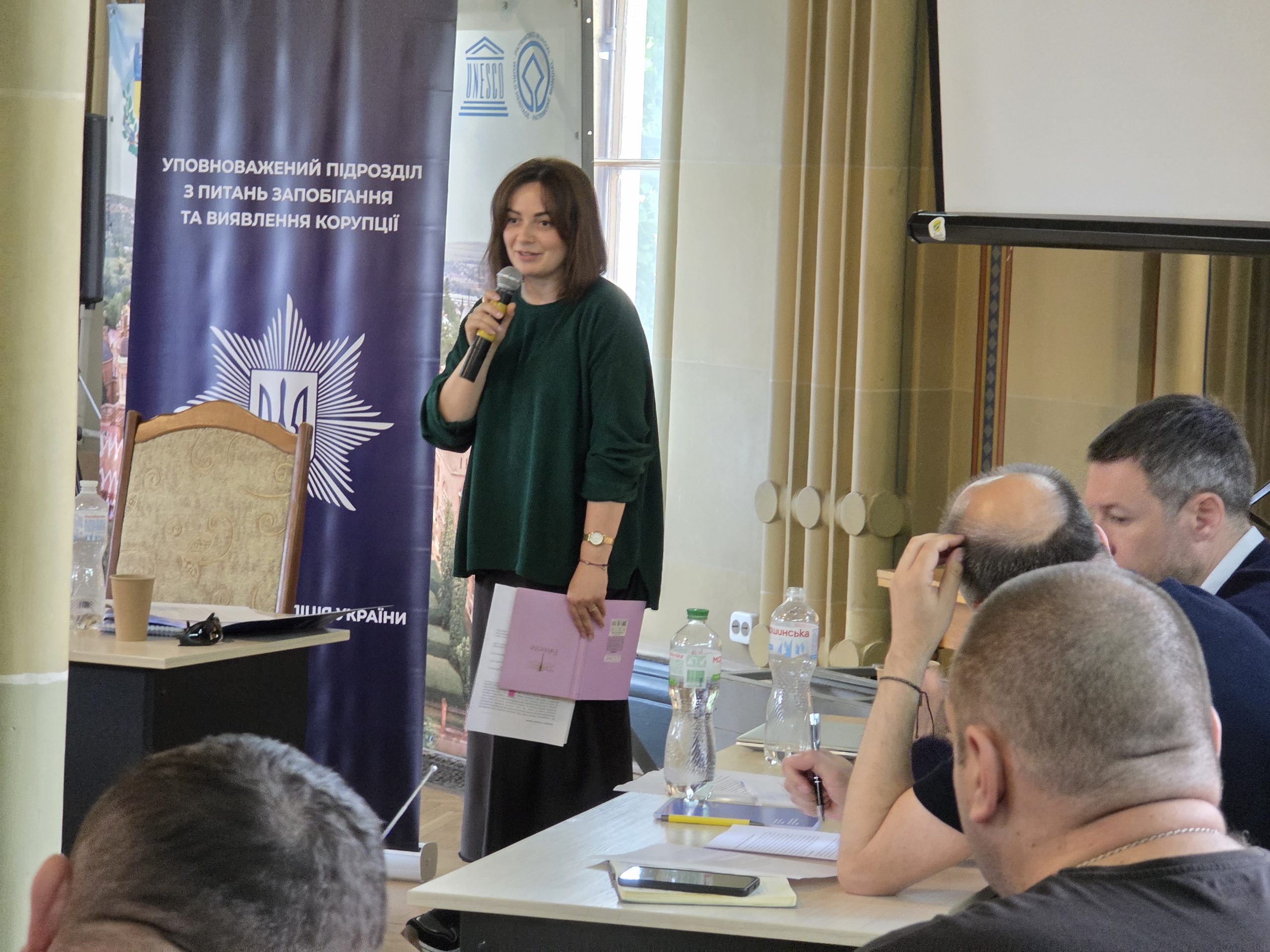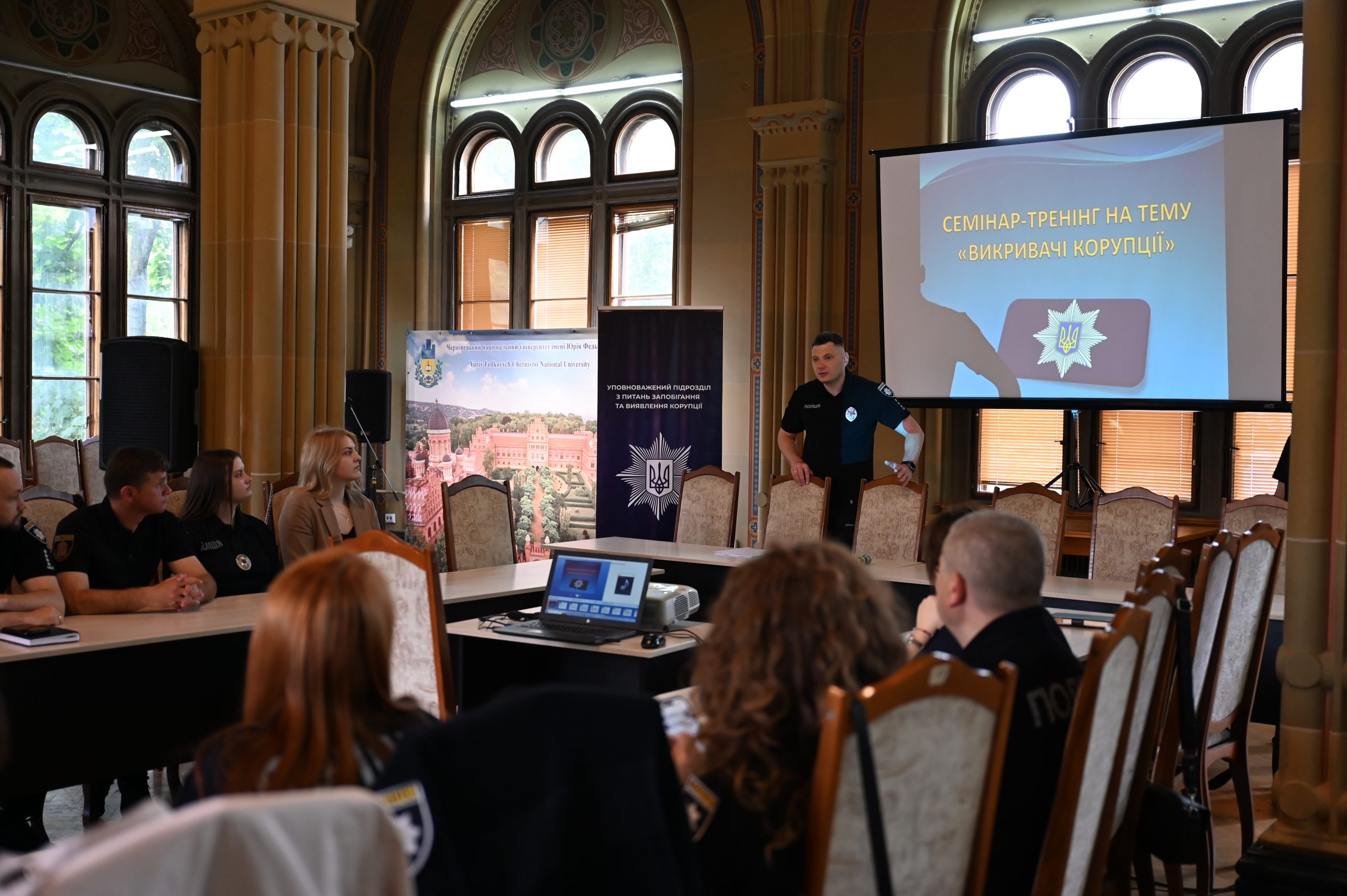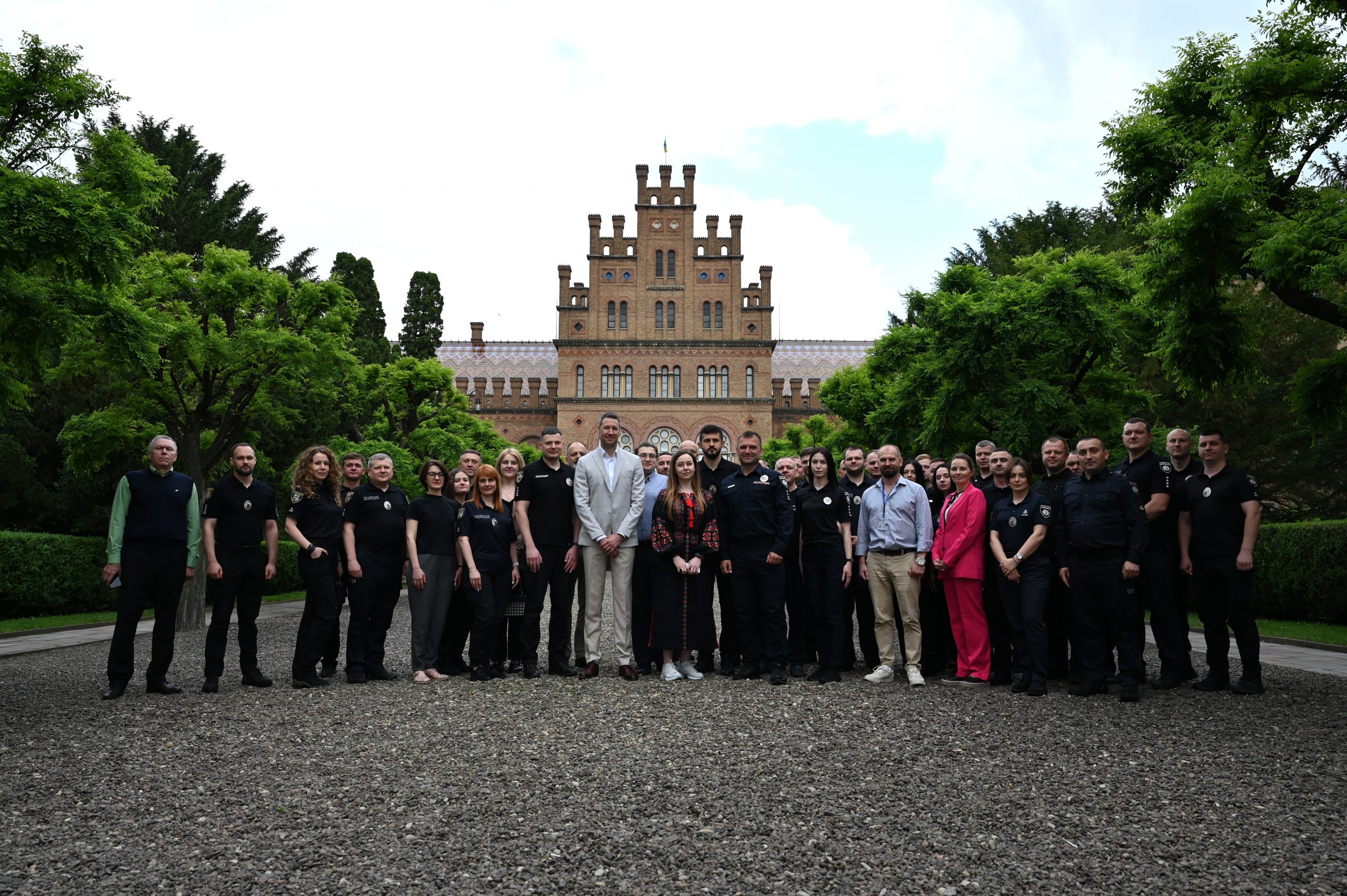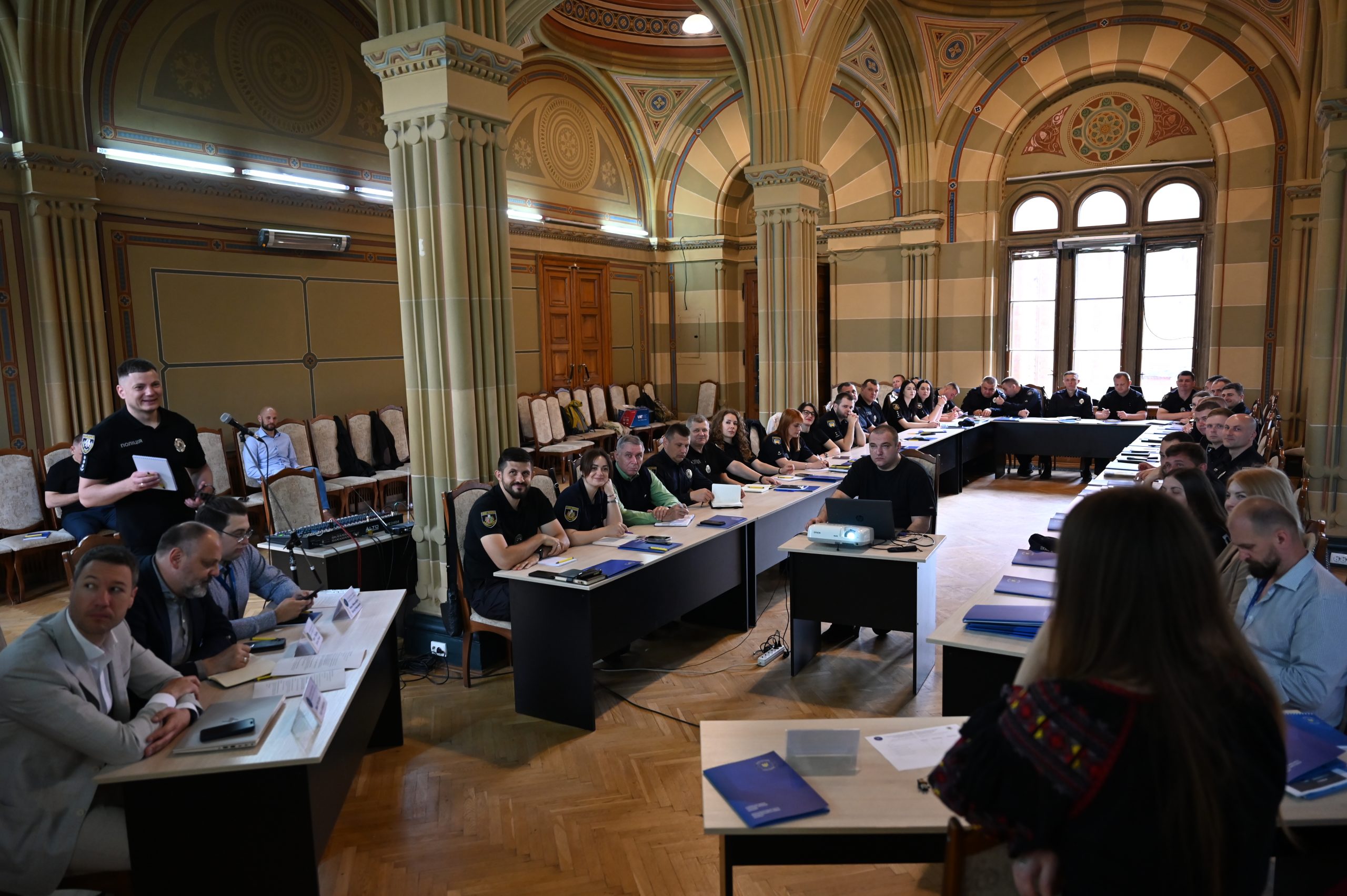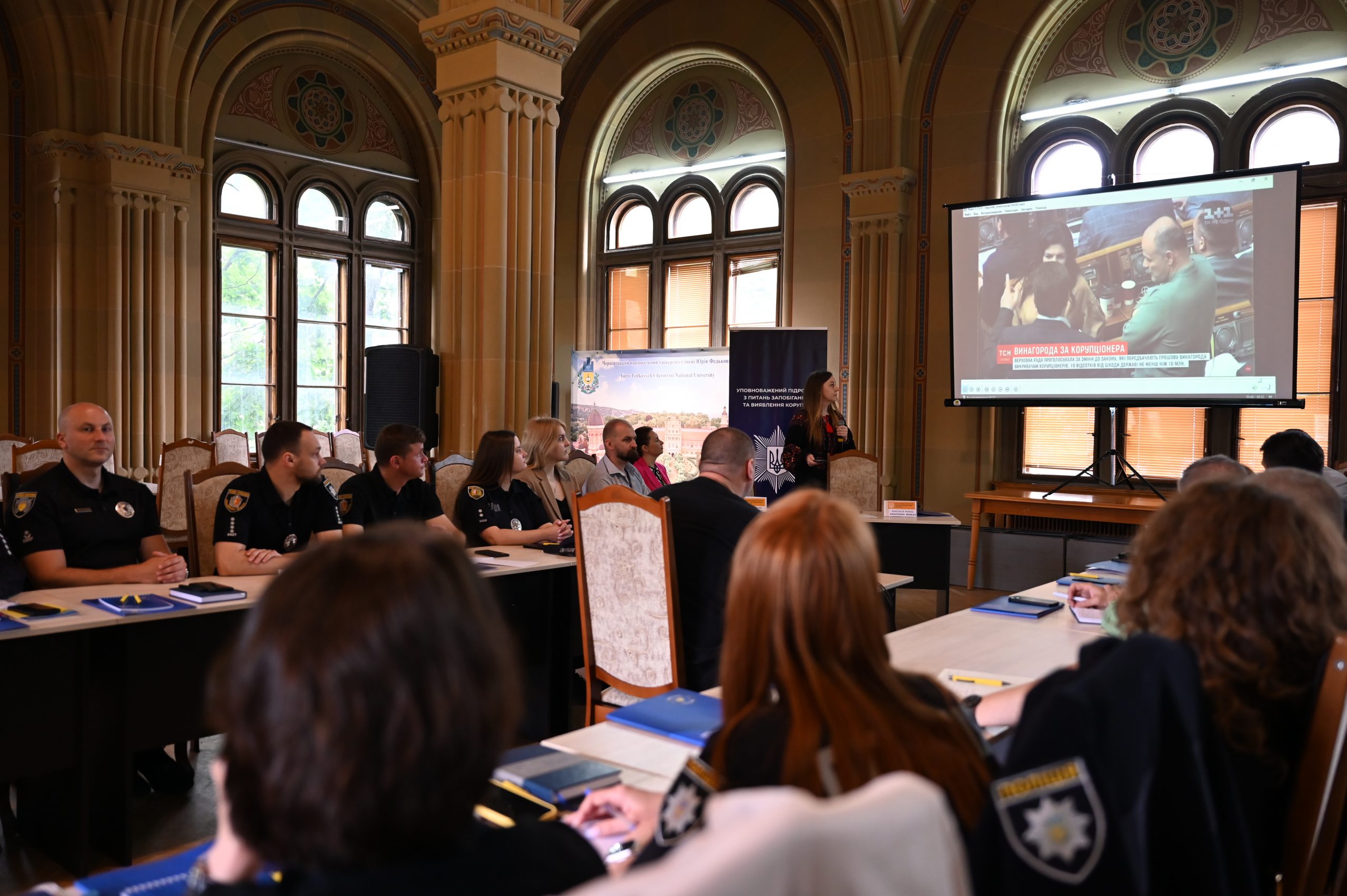Whistleblowers dilemma – between loyalty and law
June 18, 2025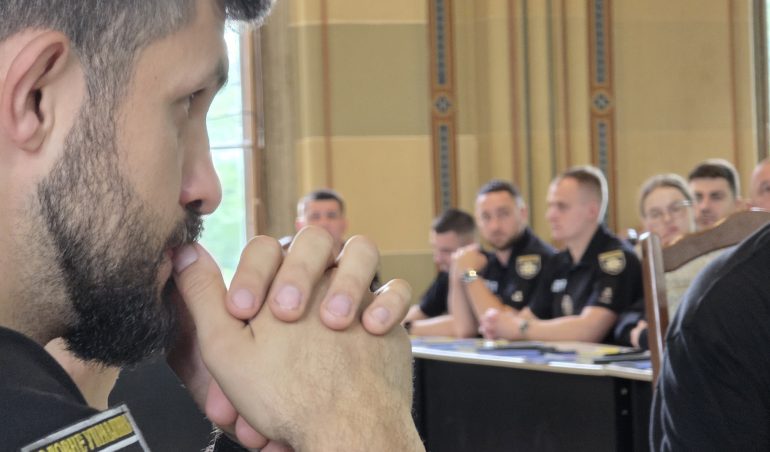
The key question underlying the whistleblower’s dilemma is very natural – if I report a misconduct or corruption within my agency, do I become a disloyal colleague, a snitch? Do my loyalties lie with my colleagues or with my values? These and other questions were raised at the workshops on the use of Ukraine’s Unified Whistleblower Reporting Portal in Chernivtsi and Uzhgorod, which gathered the representatives of the National Police, NACP, and the EU Advisory Mission to Ukraine.
Both events were part of a broader series focused not only on technical guidance, but also on supporting police officers working in corruption prevention – especially so-called authorized agents – who often operate under intense pressure and within close-knit institutions where loyalty is a core value that keeps the police force cohesive and operational. Beyond procedures and compliance related to the portal, the workshop created space for honest conversations about culture, norms, and the challenges of doing the right thing when the lines aren’t always clear, and how to talk about this with colleagues and superiors. To make it practical, the participants worked through realistic case studies based on dilemmas officers may actually face on the job.
“Let’s be honest, this isn’t just about portals or policies. It’s about the real pressures police officers face: loyalty to colleagues, the instinct to protect your own, and a culture that often feels more like family than bureaucracy. Among other things, we spoke openly about ‘кумовство’, a form of informal favoritism rooted in personal or religious ties. It’s not unique to Ukraine, but deeply embedded in many post-Soviet systems. I didn’t raise it to judge, but to name it – so we can openly ask ourselves: what role do social norms play in enabling or resisting corruption? A real reporting culture starts when integrity is seen not as a betrayal of loyalty, but as a deeper form of it” – Bart Scheffers, EUAM FO Lviv Adviser/Trainer on Good Governance.
“These workshops aim to increase the professional competence of police officers in their work with whistleblowers’ reports, ensuring proper protection of persons who report corruption, and creating uniform standards for interaction with the Unified Portal of Whistleblowers’ Reports”, noted Anastasia Renkas, the lead for development of the whistleblowing institute within NACP. “We express our sincere gratitude to the European Union Advisory Mission in Lviv for its support in organizing these workshops. Such cooperation is of key importance for the development of the whistleblower institute in Ukraine, contributing to increasing the effectiveness of anti-corruption mechanisms, protecting whistleblowers, and implementing European standards in the activities of law enforcement agencies. Such interaction is already demonstrating significant results, strengthening transparency and justice in our country”.


